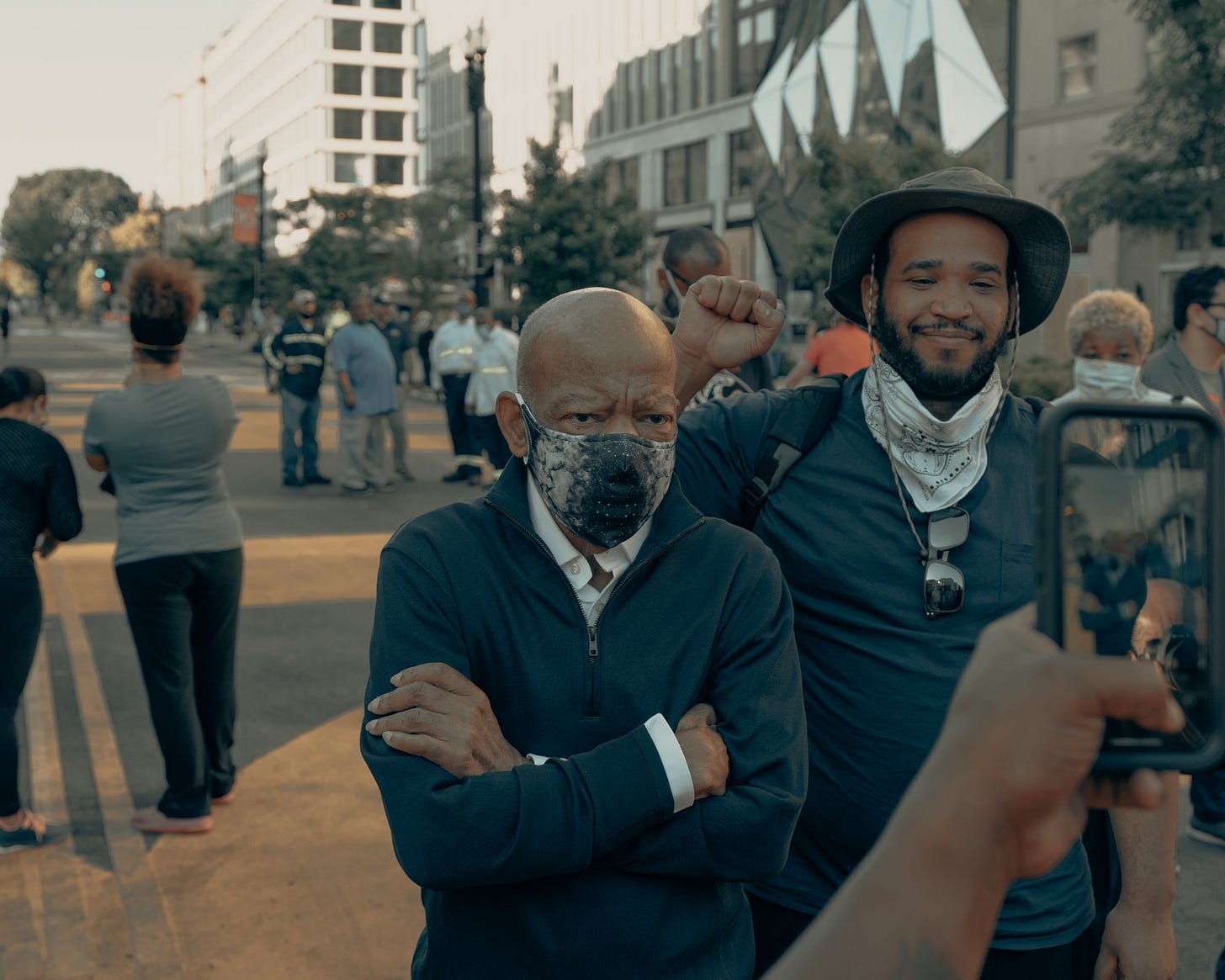So. What do you do?
Pr 12A Genesis 29:15-28 Psalm 105:1-11, 45b Romans 8:26-39 Matthew 13:31-33,44-52

Imagine you are Jacob. The father of the woman you want to marry says you must work for him for seven years before the wedding. You do. Then he tells you his eldest daughter should marry first. You may marry her (you don’t really want to) or work another seven years to marry the daughter you love.
So. What do you do? Work another seven years? Is the woman you love worth the risk of another seven years of your life? Why would you trust the father to keep his word when he knows he can get away with cheating you?
Imagine you are John Lewis. You have forgone an ordinary career in the ministry in order to secure black Americans the right to vote and participate equally in society… rights promised by white Americans nearly 100 years earlier. In your work, you have been arrested over 40 times and beaten on multiple occasions by police and/or white supremacists, once nearly to death. Friends, mentors, colleagues and allies have been murdered, their murderers walking free. And there is little evidence that the heart of white America is changing on the issue of race and white supremacy.
So. What do you do? Work more years of your life in the struggle? White America knows it can lie and steal from black Americans without consequence. Is it reasonable to believe that white America will ever change?
Martin Luther King, Jr. said: “the arc of the moral universe is long, but it bends toward justice.” He was paraphrasing the abolitionist Theodore Parker who said in 1853:
“I do not pretend to understand the moral universe;
the arc is a long one, my eye reaches but little ways;
I cannot calculate the curve and complete the figure
by the experience of sight; I can divine it by conscience.
And from what I see I am sure it bends towards justice.”
St. Paul’s version, in the reading from Romans, was: “We know that all things work together for good…”
God’s people have been watching that arc for a long time.
It can be difficult to hold onto the long vision. Jesus offers encouragement in the parable of the mustard seed. The efforts we make to advance the cause on a daily basis -- though small – are not insignificant. They are like seeds which may take root in someone’s heart or mind or imagination or conscience and grow. Perhaps they grow into great and famous lives like King’s or John Lewis’, or into great and nearly unknown lives like Viola Liuzzo or Septima Poinsette Clark, and so many others. All of them, known and unknown, like the great, tall trees of the parable.
On any given day, our task is not to fully achieve the arc. Our task is to hold on to the long vision so that with Jacob, John, Martin, Theodore, Paul, Viola, Septima and so many others, we can say “yes” – we will work on. And then plant more seeds.
______________________
Photo by Clay Banks on Unsplash

